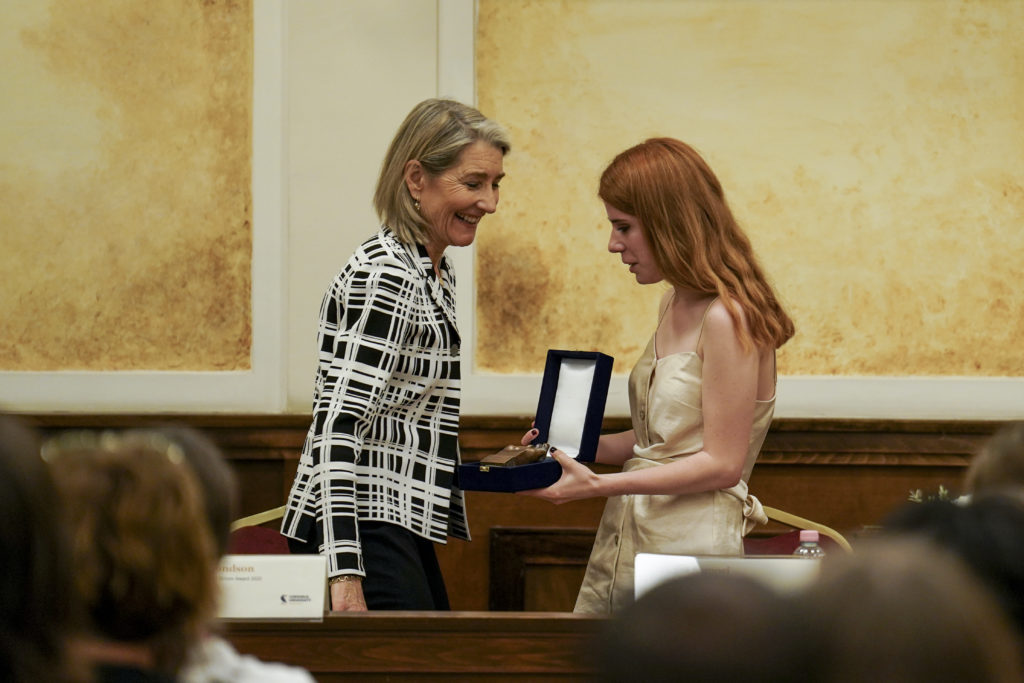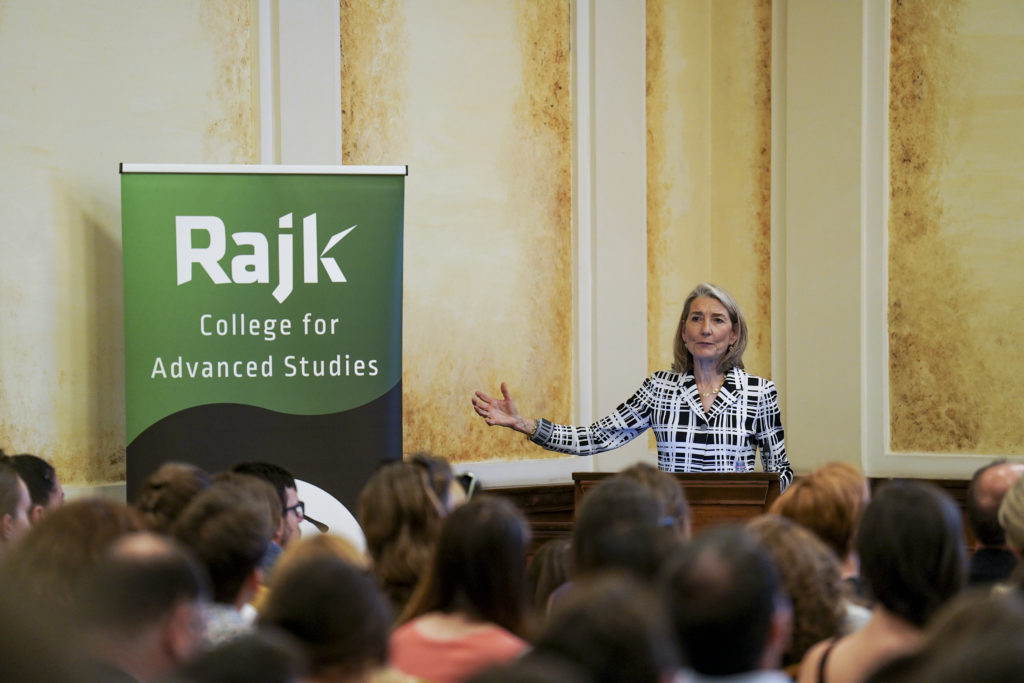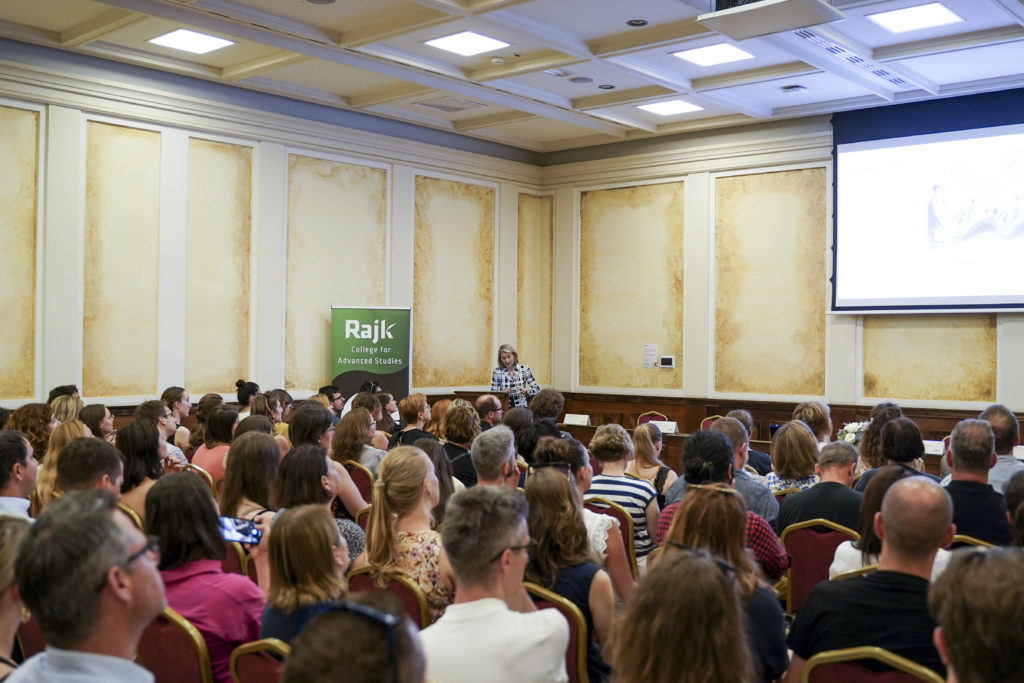The secret of a fearless workplace
2023-06-22 10:47:00Psychological safety in organisations is more important than ever – Amy Edmondson, Professor at Harvard Business School, gave a lecture on this topic at the Herbert Simon College Award ceremony at Corvinus on Tuesday.
In today’s workplace, it is no longer enough to attract talented employees; a safe, fear-free atmosphere is also needed to ensure that people perform to the best of their abilities and the company is successful. But what does a fearless organisation mean? Amy Edmondson, Professor at Harvard, who received the Herbert Simon Award from the Rajk College of Advanced Studies of the Corvinus University in Budapest on Tuesday, spoke about this in her lecture at the Corvinus. According to the economist, a fearless organisation is an environment where staff members dare to ask questions, feel free to express their doubts about an idea, and are not afraid to admit that they made a mistake if they are honest. They do not have to fear that if they have a different opinion about a plan and say so, they will be mocked, scorned, or humiliated.

The latest book by Amy Edmondson: ‘The Fearless Organization: Why Psychological Safety Matters at Work, More than Ever’ was the basis of her lecture. The author has been conducting experiments on the subject for decades, investigating how a fearless workplace affects the people who work in it, the success of the business and the good results of the company, the enterprise, or even a hospital, and the avoidance of tragedies. The importance of this topic is demonstrated by the Gallup 2017 survey: only 3 out of 10 employees feel that their opinion matters at work. But if the number three were to rise to six, as Gallup calculated, it would result in a 12 per cent increase in company productivity and a 40 percent reduction in security incidents.

Let mistakes be allowed
Being honest is not always easy, and when everyone in a group has a good opinion of a programme or plan, it is not easy to be the only one to speak out against it. (It is no coincidence that the saying “Silence is golden, speech is silver” also exists in English). According to Amy Edmondson, silence can have serious consequences: it can lead to security problems, wasted resources, bad business decisions, and even personal regret. So the most important thing is that the atmosphere in the organisation is such that people working in teams dare to express opinions that are different from those of the boss, or even different from those of the whole group. You should also be free to make mistakes and to say so honestly, without fear of consequences.
A striking example for this is an earlier study by the professor: a nurse on a night shift notices that a patient has been prescribed an unusually high dose of a drug by the doctor. Should she call the doctor and ask about it? Rather not, because it had happened once before, and the doctor didn’t like the idea of a nurse disturbing him at night, to put it mildly. The doctor must follow a special protocol, the nurse reassures herself, and does nothing. In this study, Amy Edmondson looked at the outcomes and errors of different hospitals and came to the surprising conclusion that the much better hospitals had many more errors made by nurses. As a recent study has shown, this is because nurses in the better hospital feel free to tell if they have made a mistake, while in the smaller psychologically safe place they keep it secret. Yet it is in the health sector that clearing up mistakes can save lives, as the sector is very sensitive to mistakes. The professor considers mistakes very important, without them there can be no progress, innovation or learning in any organisation, because you can learn from mistakes – most of all from the so-called intelligent mistakes.
A good leader asks questions and encourages
What is it that makes people in an organisation stay silent? ‘Because often, if we speak out, we can save lives’, said Amy Edmondson. People don’t take the risk to disagree; listening is easy, disagreeing is often difficult. They don’t want to be in a group with a different position to everyone else. They especially hate it when they are new to the workplace, and, of course, everyone wants to be a nice colleague.
What can a boss do in an organisation to create the fearless atmosphere needed for meaningful and effective work? It is very important how the leader reacts to problems, bad news, to conduct a meeting well. A good leader encourages his or her staff members to ask sensible questions, is a good questioner, humane, empathetic, and curious. In fact, there are successful companies where loyalty is no longer about agreeing with everything and not speaking out, but about disagreeing with something. A good leader will say this when he or she sees that the staff members agree with everything that is presented: “Gentlemen, I am glad you all agree. Still, let’s take some time to think about what we don’t agree on,” says Amy Edmondson.

Since 2004, Corvinus University’s Rajk College of Advanced Studies has awarded annually the Herbert Simon Award (in memory of the Nobel Prize-winning American political scientist) to professionals whose work has made a significant contribution to solving business problems or inspired the thinking of the members of the Rajk College of Advanced Studies. This award is voted on democratically by the students of the college for advanced studies only. The award also includes a public lecture by the awardee at Corvinus, open to all interested parties. This year’s awardee is Amy Edmondson.
Photo credit: Evgenia Eliseeva, Wikipedia and Corvinus